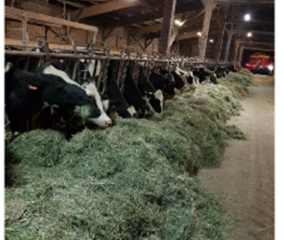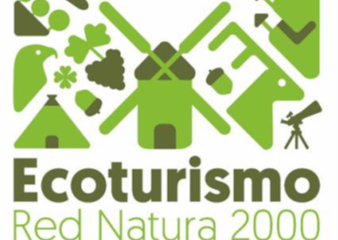Kerbouzier, Third-place tourism and eco-construction learner
France
Introduction
In 2020, the association Kerbouzier responded to the call for projects of the Melgven town hall (3400 hab), near Concarneau in Cornwall, for the exploitation of the former municipal campsite, a plot of more than one hectare. Their idea is to create a third tourist place with unusual and ecological accommodations, open to all. Based on an ecotourism project, Kerbouzier’s goal is to create links, raise awareness and train tourists and locals on the ecological transition, by offering an immersive experience in a place that demonstrates sobriety and low tech where biodiversity is preserved. During the year, Kerbouzier is a living place available to local residents and associations (participatory garden, events…) but also and above all a training ground for eco-construction. In 2022, the development of the land began with the creation of a nursery garden, which supports activities around nature and ecology. The first “straw hut”, lightweight straw/earth/wood accommodation is built during participatory construction projects.
Presentation of the project
After more than 10 years in the tourism sector and concerned about environmental issues, Pauline Lesueur and Damien Romani-Cortes decided to create an eco-tourism project as part of a sustainable approach. Their project, chosen by the Melven City Council to revive the former campground, they formed an association and surrounded themselves with a passionate local team with skills complementary. The land, located 5 minutes walk from the village of Melgven, 30 minutes by bike from the beaches and Concarneau, is then an opportunity to develop a tourist activity in rural areas. The Kerbouzier project immediately created a craze in the territory. To date, the association has 200 members and around 10 volunteers who are active in the garden, construction sites and events.
The project
The Kerbouzier Third Place is fully in line with an eco-tourism approach around these 5 principles:
- Tourist welcome dedicated to the welcome of hikers, cyclists and new ways of traveling roaming (e.g. the development of upgraded vans);
- A natural environment in a wooded site, support for learning agroecology through a shared feeder garden;
- Unusual accommodation, made of natural materials, training materials for eco-construction (wood, land and straw) and the organization of learning trips in participatory sites (conducted by 2 vocational trainers);
- Integration into the territory and the relationship with local inhabitants
- The friendliness and the cultural animation.
Thanks to the LEADER European Funds and the financial support of the City Hall of Melven, several actions the following shall be implemented in 2022:
- The first reception facilities were built by volunteers (dry toilets, communal kitchen, trinquette bar and pizza oven)
- The nursery garden was created by Axel’s expert hands, who was hired to design it and animate it with members;
- the first unusual accommodation (paillourte) was built as a shared construction site during in summer. A memorable construction site that has brought together many locals and visitors around the site;
- The first festive events livened up the place throughout the summer.
The idea is to build a new straw hut every year through paid stays in training of eco-construction. The accommodation thus built will be progressively rented out tourism to generate revenue and ensure the sustainability of the third-place project.
Kerbouzier is a third place for experimentation and demonstration of low tech, in connection with Low Tech Concarneau Lab. The site serves as a laboratory to experiment with sobriety and energy autonomy. Facilities within the site are intended to conserve resources (materials, energy, water), in particular through the use of bio-based materials, re-use, installation of sanitary facilities and “low” cooking tech” (solar oven, rocketstove, etc.). Water resources are also the focus of attention: the economy and recovery with the implementation of Keyline design.
An active promotion of the development of biodiversity on the site is undertaken through the creation of ponds, agroforestry practices, biodiversity reserves, fruit hedges diversified and the vegetable garden.
Below is a report from France3 Bretagne on 2 third places in Cornouaille including Kerbouzier in the first part.
The emblematic character of the project
The project meets several of the LEADER strategy’s objectives: to support the ecological transition and to experiment with new forms of tourism reception. It combines a sobriety approach, work to promote biodiversity, local partnerships with the local community and associations, the integration of the inhabitants into the project and the experimentation of a new economic model. Work on educating people about the green transition should gradually spread. A collaboration with Quimper’s AFPA through the DEFFINOV (Third Learning Places) project, starting in 2024, will extend this educational impact to a wider audience, including young people. This eco-construction training with AFPA also aims to help local job seekers acquire new skills. Other campgrounds may be in demand for this new type of accommodation. Activities and training on eco-construction and agroforestry will continue on the site. The design of an educational path will allow visitors to discover the garden and understand the different facilities, in order to share experiences. The elected officials hope that Kerbouzier will spark momentum by linking projects, associations, local residents and holidaymakers. The project can also lead to a reflection on urban planning and new ways of living in rural and coastal areas.
Pictures

Participatory site eco-construction of a straw house

The first straw hut built in 2022 – Greenhouses of the nursery garden
Kerbouzier, Tiers-lieu touristique et apprenant en éco-construction
CORNOUAILLE
BRETAGNE – Melgven, Finistère sud

